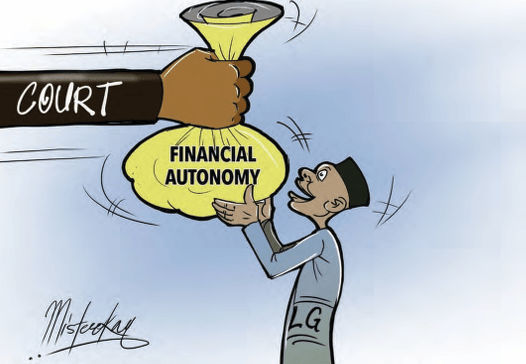Concerns Mount Over Non-Implementation Of Supreme Court Ruling On Local Government Autonomy

The continued delay in implementing the Supreme Court’s landmark judgment granting financial autonomy to local governments in Nigeria has drawn sharp criticism from workers, legal experts, and civil society organizations (CSOs). The ruling, delivered on July 11, 2024, mandated that funds meant for local councils from the federation account be paid directly to their accounts. However, five months later, the judgment remains unenforced.
Despite initial reports suggesting October 2024 as the deadline for implementation, the Attorney-General of the Federation and Minister of Justice, Prince Lateef Fagbemi (SAN), has refuted such claims, leaving the timeline uncertain. The delay has sparked allegations of deliberate sabotage by state governors, many of whom conducted hasty and allegedly flawed local government elections in response to the ruling.
Senior lawyer Mr. Kehinde Eleja (SAN), in an interview, emphasized the critical nature of the Supreme Court’s ruling, stating that the delay undermines governance at the grassroots level. “The Supreme Court acted with urgency, understanding the constitutional importance of this case. Five months is more than enough time for implementation,” Eleja noted.
Similarly, legal practitioner Bello Galadi, a former chairman of the Nigerian Bar Association in Zamfara State, condemned the governors for ignoring the court’s directive. Galadi criticized the joint account system, calling it a conduit for siphoning local government funds.
In Kaduna, Hiifan Abuul urged the abolition of the joint account mechanism and called for stricter measures to ensure financial autonomy. However, he expressed doubts about the capacity of current local government chairmen, many of whom he alleged were handpicked by governors.
The Nigeria Union of Local Government Employees (NULGE) in Zamfara and Plateau States, along with CSOs in Gombe and Cross River States, have expressed frustration over the non-compliance. Ahmed Isah, NULGE chairman in Zamfara, accused state governors of selfishness, while Ibrahim Yusuf of the Gombe State Network of Civil Society Organizations (GONET) blamed political godfatherism for the delay.
“The governors appoint loyalists as local government chairmen, rendering elections a sham,” Yusuf alleged. Similarly, Bachama Yusuf, secretary of the Association of NGOs (ANGO) in Gombe, warned that ignoring the judgment could erode trust in the judiciary and democracy.
Calls for Accountability
Prominent legal experts, including Okoi Obono-Obla, former chairman of the Special Investigation Panel for the Recovery of Public Property, decried the executive’s failure to act. “This is a blatant violation of Section 287(1) of the Constitution, which mandates the enforcement of Supreme Court decisions,” Obono-Obla stated, describing the delay as a stain on Nigeria’s justice system.
Contrasting States’ Responses
In Jigawa State, local councils reportedly enjoy financial autonomy, with NULGE chairman Comrade Abubakar Garba Shittu affirming compliance even before the Supreme Court’s ruling. Conversely, in Osun State, stakeholders urged caution, citing economic challenges that could hinder salary payments if the judgment is implemented immediately.
A Nation Divided
The delay in implementing the Supreme Court ruling has laid bare systemic issues in Nigeria’s governance structure, from alleged misuse of funds to political interference at the grassroots level. As legal experts and civil society groups continue to push for action, the spotlight remains on the federal and state governments to uphold the rule of law and ensure that local governments function as constitutionally mandated.

